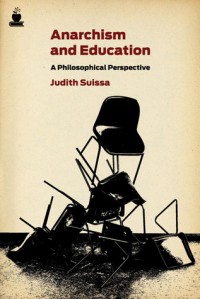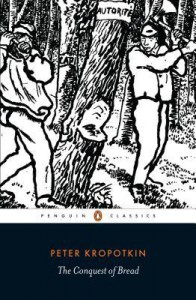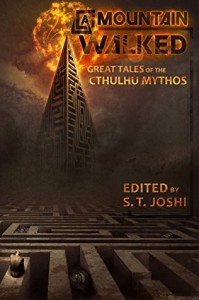capriceum

Complete Book of Tarot Spreads

I loved this book and can see myself using it as a reference a lot in the future.
I liked how the authors stress the importance of each card having a positive and negative aspect, so it doesn't necessarily matter whether or not you pull it upright or reversed. Both aspects could apply.
The repetition of the idea that the tarot cards act like a mirror of the reader's life at that moment was good, too. It's definitely an idea to keep in mind when doing readings. I found it very interesting that these authors say the cards always refer to the present time, with the past and future always influencing the present.
"Every card may indicate that a task has already been accomplished or has yet to be taken on. The message...may be a warning, encouragement, or validation." (p. 34) At first I couldn't understand how this could be true, because it seems like it kind of cheapens the truth of the tarot. But then I thought back to previous readings where this could actually be the case. It really depends on the situation, because life is so complex and reality can manifest itself in infinite ways from infinite perspectives.

Anarchism and Education: A Philosophical Perspective

Some good, big ideas in this little book. When defining a liberal education, Suissa quotes Paul Hirst in saying "the liberal educational ideal is essentially non-utilitarian and non-vocational...[It] emphasizes the idea of the mind and mental development" in a "conception of human nature that regards human potential as consisting primarily in the development of the mind" (p. 22). I like this idea, because it's basically what separates us from other animals, our ability to develop our mind. What it means to reach one's full potential then is to never stop learning and continually enhance one's education. Potential is in no way related to the ability to reach a certain level of productivity in the economy.
Chapter 2 was very interesting as well. Since many of the criticisms of anarchism "hinge on the concept of human nature," Suissa explores the anarchist position on the topic. I thought she made some really good points. Humans are basically social, helpful creatures. And though there will always be exceptions, those exceptions will never be the majority.
Loved the bit about the anarchist take on authority, and the theory of decentralization: "There could, in theory, be an infinite, elaborate network of such circles, the crucial point being that none of them would have absolute authority..." (p. 58)
Another good idea here was using education to foster the development of certain beliefs and attitudes, such as fraternity. And I loved the proposal for an education that combines work with study, manual training with intellectual exercise.
"An education that was divorced from the world of work, that is, an education that was entirely bookish or grammar-schoolish in conception was valueless from the point of view of ordinary working-class children. Of course, an education that went too far in the other direction, which brought up children merely to be fodder for factories, was equally unacceptable. What was required was an education which would equip a child for the work-place but would also give him a degree of independence in the labour market." (quoting Smith 1983) (p. 105)

In the Miso Soup

Someone years ago (back when I was still in high school) told me I seem like the type of person who would like this author, and recommended this book to me. It looked interesting so I put it on my to-read list, then I took it off because it didn't look as interesting...then last year I added it again because I kept thinking about it! So I was glad to finally be getting around to this.
This was a philosophical journey into the darker side of modern Japanese society. The reader gets a lot of fascinating introductions to different types of people in the Tokyo sex scene. Descriptions of different women who "sell it" and why, plus the people who facilitate the whole business. Toward the end of the story Frank talks about a Peruvian hooker who knew more about Japan than the Japanese women in an omiai club, who were only interested in fashion and expensive things and who sold themselves because they were lonely. There was also a guy named Satoshi in the beginning who was considered mental because he played with blocks on the train. I liked that guy.
I liked the concept of bonno, the worldly desires or bad instincts. And the parts about shifting between different worlds was cool, too. I got lost as a kid plenty of times (and still get lost easily now) so I know exactly what Frank was talking about when he said it was like entering a different reality.
Thought-provoking quotations:
- "All Americans have something lonely about them. I don't know what the reason for that might be, except maybe that they're all descended from immigrants." (p. 30) . . . "The type of loneliness where you need to keep struggling to accept a situation is fundamentally different from the sort you know you'll get through if you just hang in there." (p. 39)
- "Parents, teachers, government—they all teach you how to live the dreary, deadening life of a slave, but nobody teaches you how to live normally." (p. 62)
- "Very few people of our generation or the next will reach adulthood without experiencing the sort of unhappiness you can't really deal with on your own." (p. 72)
- "Basically people who love horror movies are people with boring lives. They want to be stimulated, and they need to reassure themselves, because when a really scary movie is over, you're reassured to see that you're still alive and the world still exists as it did before. That's the real reason we have horror films—they act as shock absorbers—and if they disappeared altogether it would mean losing one of the few ways we have to ease the anxiety of the imagination." (p. 161)

The Conquest of Bread

Kropotkin details how we might provide the essentials to all: food, shelter, clothing, leisure, and luxury. He says people should work 4-5 hours a day. He also says there are lots of people who work at harmful trades or are useless middlemen who could be put to more productive work. I definitely think this is still the case today. We have sufficient technology to get rid of a lot of middlemen.
"After bread has been secured, leisure is the supreme aim." Everyone has a right to leisure specific to their individual tastes. I'm so glad Kropotkin made this point. Fully-automated luxury communism is achievable!
There's also some good examples given here of people organizing according to need without the interference of government, like the Red Cross. When there is a need for it, people will come together and find a way without being told what to do.


 3
3
 1
1

















